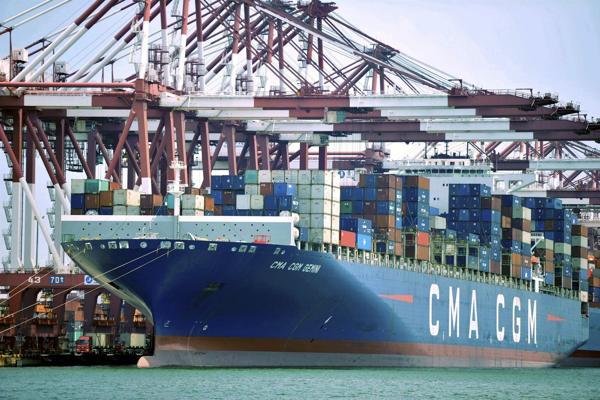WTO paints gloomier global trade picture
GENEVA-Agence France-Presse


The World Trade Organization on Sept. 27 downgraded its global trade forecast for this year and next, pointing to escalating trade tensions around the world.
“Escalating trade tensions and tighter credit market conditions in important markets will slow trade growth for the rest of this year and in 2019,” the WTO warned in a statement.
“Trade will continue to expand but at a more moderate pace than previously forecasts.”
The organization now expects merchandise trade volumes to expand 3.9 percent this year and 3.7 percent in 2019, down from an April forecast of 4.4 percent and 4.0 percent growth, respectively.
It warned that it may have to cut its forecasts again because downside risks to its predictions “are considerable and heavily weighted to the downside”.
The WTO’s downgrade comes only days after U.S. President Donald Trump’s tariffs on another $200 billion of Chinese imports took effect, with Beijing accusing Washington of “economic intimidation”.
The latest volley against Beijing brings the amount of goods hit by duties to more than $250 billion, roughly half of China’s exports to the United States.
“While trade growth remains strong, this downgrade reflects the heightened tensions that we are seeing between major trading partners,” WTO Director General Roberto Azevedo said in the statement.
“More than ever, it is critical for governments to work through their differences and show restraint,” he said.
The WTO said trade measures and threats since its last report in April were only having a “modest” economic effect for now, “but the uncertainty they generate may already be having an impact through reduced investment spending.”
But the WTO didn’t blame trade spats alone for the downturn in international exchanges, saying tightening monetary conditions in developed countries were also hurting trade, as currency values in poorer countries dropped, making it harder for them to pay for imports.
Analysts have notably cited rising U.S. interest rates as a main factor in a recent meltdown of a string of emerging countries’ currencies.
“Developing and emerging economies could experience capital outflows and financial contagion as developed countries raise interest rates, with negative consequences for trade,” the WTO said.
China’s move away from investment towards consumption was meanwhile still ongoing and “could weigh on import demand”, also contributing to a dampening of overall trade volumes.
